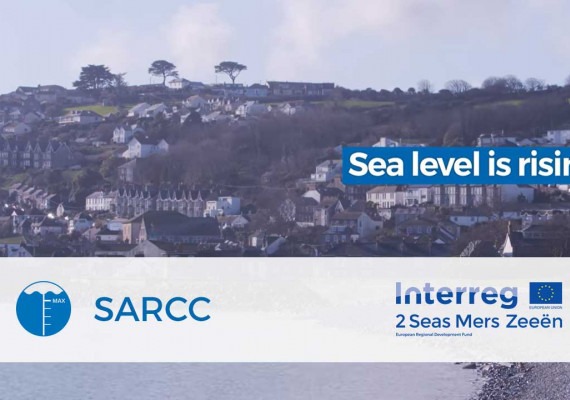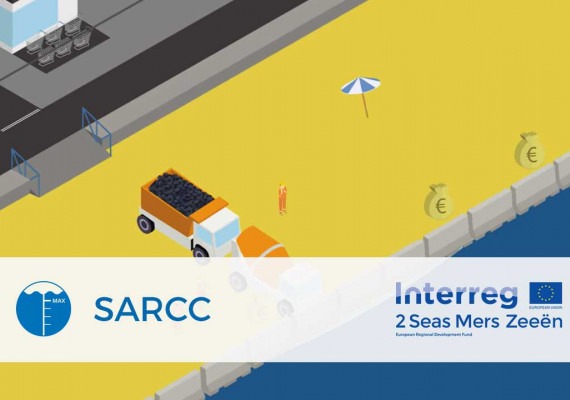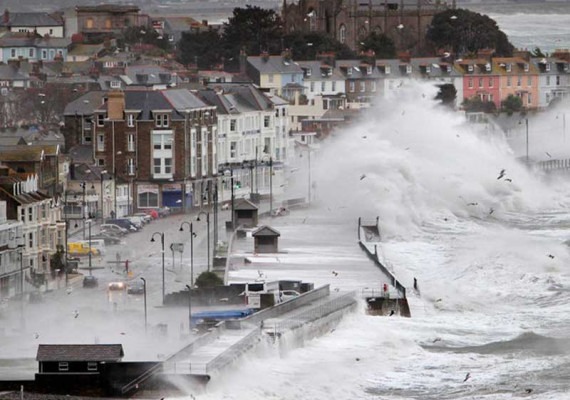SARCC
Sustainable and Resilient Coastal Cities
Priority Axis
Adaptation to Climate ChangeSpecific objective
Adaptation to Climate Change
Lead partner
Southend Borough CouncilContact
Begindatum
25/01/2019Einddatum
31/03/2023Project budget
10 333 528 €ERDF amount
6 200 117 €ERDF rate
60%Over
Common challenge
The World Bank defined floods as 'the most frequent and damaging of all natural hazards globally'. Mean sea level rise (SLR) could increase by 1.5 million to 2.5 million by 2100, which would see the damage caused by coastal flooding in Europe increase from €1.25 billion per annum currently to €961 billion in just over 80 years (European Commission, 2018). The physical processes that cause coastal flooding are common across the 2 Seas area, increasingly high spring tides, tidal surges, more frequent winter storms and large waves. With urban environments being placed under increasing pressure in terms of population growth, the economic loss and damage to these areas will only increase further across the Programme area. Coastal flood plans and policies focused predominantly on deploying traditional grey infrastructure/heavy engineering and ignore the use of nature-based solutions (NBS), despite the overwhelming evidence of their potential to reduce flood risk and provide multiple benefits. NBS were often not considered by policymakers in detail due to the perceived risks around costs, potential for success, requirements for immediate protection/improvement and uncertainties regarding future change. This challenge was tackled by SARCC project as partners identified a missing clear knowledge gap across coastal local authorities to deploy NBS to reduce future coastal flood risk and economic damage.
Overall objective
Main outputs
Cross border approach
Main Achievements
The main aim of SARCC project was to help mainstream NBS into coastal management and policy. To achieve this, the project successfully completed several outputs. The project implemented 7 pilots with nature-based solutions in the 4 different Member States. Before building the pilots, the urban partners worked on their coastal management strategies, by defining a specific strategy for their coastal city. Furthermore, the project developed several methods and services to improve the adaptation capacity to climate change: a new framework and monitoring tool, a nature-based solution capacity programme and a visualisation toolkit for local stakeholders. The pilots have received a lot of attention, and pilot partners have been approached a lot by interested parties for information and requests for site visits. This is particularly the case for the Vlissingen pilot, where, for example, the city was approached by the Delta commission who is initiating a project with pilots and would like Vlissingen to be involved in order to learn from their case. The project also received attention from UNESCO and the UN. The project was presented as best practice when using the maritime cultural heritage to understand the long Duree and integrate these concepts within The Decade of Ocean Science and Sustainable Development. A Position Statement in support of this issue was formally presented to the UN following the UN Oceans Conference in 2022 and a further SARCC presentation was given at the UN Water Conference in 2023. Cross-border cooperation facilitated NBS mainstreaming. Partners learned from a model of stakeholder cooperation for NBS & coastal protection in the other states. The pilots across the Programme area resulted in a lot of information collected & lessons learned inspiring decision-makers. Partners themselves feel they have more options available than grey infrastructure and feel that because of SARCC they will be more likely to get approval for NBS alternatives in the future. SARCC has also been successful in generating public support for NBS. The achievements of the SARCC project will effectively help mainstreaming nature-based solutions into coastal management and policy making within the 2 Seas area and beyond.
Testimonial
“The project builds the capacity of urban leaders, decision-makers and officers involved in coastal flood defences to deploy Nature Based Solutions and understand the additional benefits that they offer in comparison to traditional grey infrastructure.”



